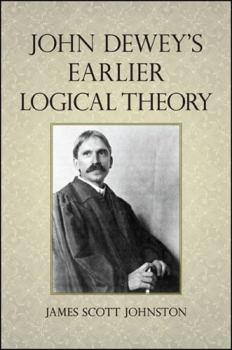John Dewey's Earlier Logical Theory
Select Format
Select Condition 
Book Overview
When John Dewey's logical theory is discussed, the focus is invariably on his 1938 book Logic: The Theory of Inquiry. His earlier logical works are seldom referenced except in relation to that later work. As a result, Dewey's earlier logical theory is cut off from his later work, and this later work receives a curiously ahistorical gloss. Examining the earlier works from Studies in Logical Theory to Essays in Experimental Logic, James Scott Johnston provides an unparalleled account of the development of Dewey's thinking in logic, examining various themes and issues Dewey felt relevant to a systematic logical theory. These include the context in which logical theory operates, the ingredients of logical inquiry, the distinctiveness of an instrumentalist logical theory, and the benefit of logical theory to practical concerns--particularly ethics and education. Along the way, and complicating the standard picture of Dewey's logic being indebted to Charles S. Peirce, William James, and Charles Darwin, Johnston argues that Hegel is ultimately a more important influence.
Format:Hardcover
Language:English
ISBN:1438453450
ISBN13:9781438453453
Release Date:December 2014
Publisher:State University of New York Press
Length:272 Pages
Weight:1.20 lbs.
Dimensions:0.9" x 6.3" x 9.5"
Related Subjects
PhilosophyCustomer Reviews
0 rating





